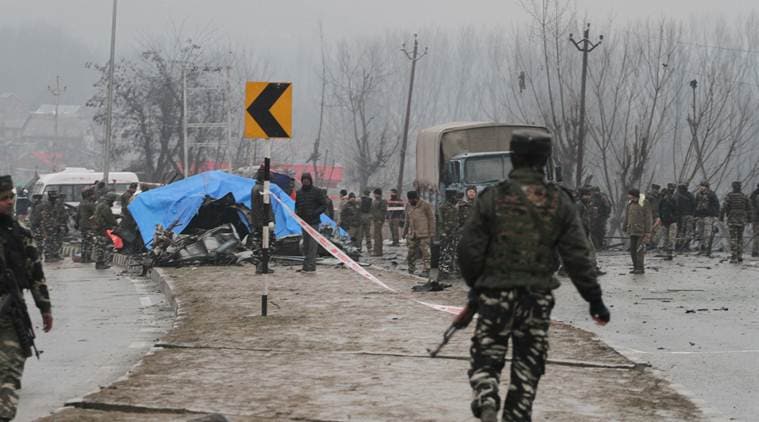India urgently needs a national security doctrine, clear red lines
We remain deficient in intelligence-analysis, inter-agency coordination, and, above all, a national security doctrine. Having created an elaborate national security framework, post Pokhran II, India has strangely shied away from promulgating a doctrine.

As the nation mourns the tragic loss of 40 gallant CRPF jawans, killed in a “fidayeen” attack, our people are engulfed by emotions of grief, revulsion and anger. Stomach-churning visuals of the mangled CRPF vehicle speak of the technical expertise that went into the preparation of a powerful improvised explosive device (IED) as well as the detailed planning undertaken for this deadly ambush of the police convoy — this is certainly not the work of high school drop-outs or amateurs.
One of the first instances of a vehicle-borne IED being used in J&K, the success of this tactic could mark a new phase in the ongoing counter-insurgency operations. For this reason, and for preventing a recurrence of such tragedies, it is vital that an urgent review be undertaken of the quality and timeliness of intelligence inputs and the standard operating procedures (SOP) being followed by the armed police force convoys; especially if different from the army’s.
In moments such as these, there is never a dearth of melodramatic and inflammatory rhetoric about instantly “visiting retribution” and “exacting revenge” from Pakistan. However, rather than the scope for any knee-jerk or emotional response, this tragic incident provides India yet another opportunity for reflection and introspection about our management of crisis situations in general, and of Pakistan’s role in Kashmir, in particular.
At the core of any cogitation about Pakistan, firm focus needs to be retained on the centrality of its “deep state” — the unholy nexus of its army’s General Headquarters and the Inter-Service Intelligence (ISI) Directorate. This sinister entity is the self-appointed “guardian” of the Islamic state, and has an existential stake in keeping Kashmir ablaze through the steady, clandestine and deniable infusion of violence and terrorism.
The Old Testament contains a cautionary phrase, which warns: “If the trumpet giveth an uncertain sound, who shall prepare himself for battle?” Has India’s political leadership, over the past 72 years, been sounding an “uncertain trumpet” by its woolly-headed thinking, lack of resolve and absence of a coherent long-term vision, thereby emboldening our adversaries? Crisis after crisis has caught our nation by surprise — unprepared and invariably in the reactive mode. Nothing illustrates the barrenness of New Delhi’s prevailing strategic culture better than the failure of the Indian state to evolve a strategy for resolution of the Kashmir imbroglio. They have allowed, instead, this issue to become a pressure-point for exploitation by our western and eastern neighbours, separately and in collusion.
A myopic vision and blinkered outlook also seems to have frittered away India’s advantages in many domains. Given India’s significant conventional superiority and Pakistan’s geographic vulnerability, it is ironical that the latter should have been able to wage war on us four times since Partition. On a parallel track, was Pakistan’s three-decade-long strategy of “bleeding India by a thousand cuts” — using terrorists and religious fanatics — premised, at first, on India’s “strategic restraint”, and then on its own nuclear capability. No sooner had India assumed that Pokhran II would bring strategic stability, than it was thrown off-guard by Pervez Musharraf’s audacious but extremely foolish Kargil misadventure.










.png)




























No hay comentarios:
Publicar un comentario